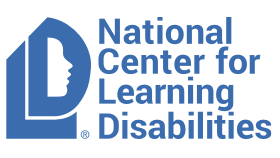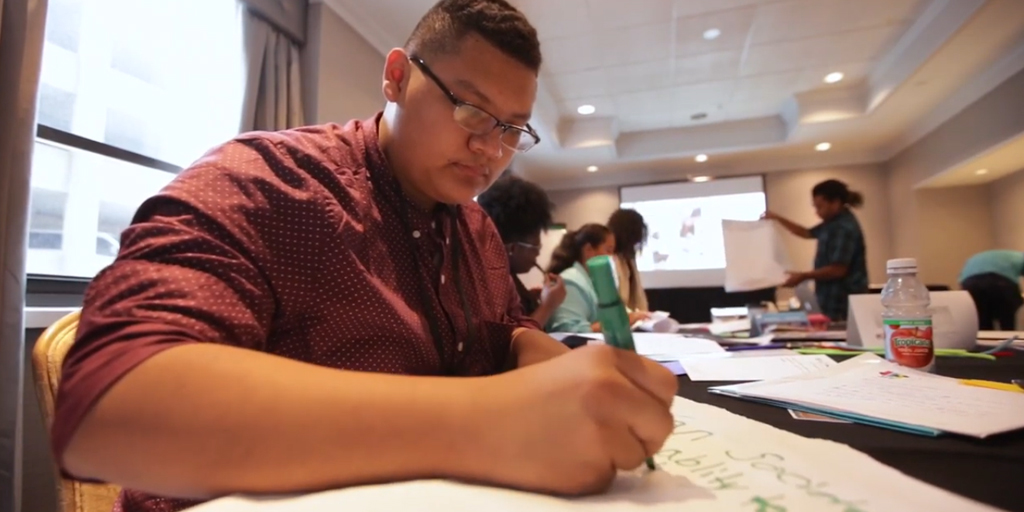Student researches how historically marginalized students can pursue meaningful careers after high school

Everitt Price is part of the cohort of youth researchers in the Youth Action Researchers at the Intersection project. He researched the question: How can historically marginalized students pursue meaningful paths and healthy careers after high school?” Meet the Student Researcher Everitt Price (he, him) Family members: Mom, grandma and three sisters Favorite song: Dream On by Aerosmith What would people not know just by looking at you: I can dance. How you… Read More ›
Youth Examine How Their District Can Improve Education for High School ESL/ELL Latinx Students

Angel Feliz and Michellet (Michy) Brand are part of the cohort of youth researchers in the Youth Action Researchers at the Intersection project. They researched the question: How can the Providence public schools district improve their education for high school ESL/ELL Latinx students? Meet the Student Researchers Angel Feliz (he, him) Birthplace: Dominican Republic Family… Read More ›
Students Examine How Racial and Ethnic Backgrounds of Teachers and Students Affect Classroom Relationships

Laila Ibrahim and Amy Monroy are youth researchers involved in the Youth Action Researchers at the Intersection (YARI) project. They researched the question: How do the racial/ethnic backgrounds of teachers and students affect student-teacher relationships within the classroom? https://youtu.be/7Pxu0v6WTS0 Meet the Student Researchers Laila Ibrahim (she, her) Birthplace: Pasadena, CAFamily members: Parents and older sisterCurrent favorite book: A Brief… Read More ›
Students Explore the Advantages and Disadvantages Female Students of Color Face in Schools

Crissanny and Michelle are part of the cohort of youth researchers in the Youth Action Researchers at the Intersection project. They researched the question: What advantages and disadvantages do female students of color face in schools, and how does it affect their learning journeys? Meet the Student Researchers Crisanny Martinez (she, her) Birthplace: Dominican Republic… Read More ›
Youth Researchers Explore How Schools’ Impressions of Students and Disabilities Impact Accessibility

Meet the Student Researchers Adi Gamache (he, him) Family members: mom, dad and two younger brothers Current favorite song: It Will Come Back by Hozier What’s one thing people wouldn’t know just by looking at you: I’ve played over 300 hours of a farming simulator game. How you have coped through the pandemic: Playing a… Read More ›
Resource Round Up: Competency-Based Education

Stakeholders throughout the education field are asking how student-centered approaches might address inequities and challenges. Some schools already utilizing a personalized, competency-based approach have found the transition to remote learning less difficult, though the articles below make a case for adopting competency-based approaches during remote learning – and in the future. How to Use Online… Read More ›
Maximizing Student Engagement and Learning: A Guide to High School Planning During COVID-19

Springpoint spoke with over 40 leaders from schools, districts, networks and organizations around the country to hear what went well in spring 2020, what they learned and how they are planning for a fall like no other. The insights and reflections from those interviews informed this publication, which aims to help school leaders and their… Read More ›
Promise and Peril: Examining the Role of Ed Tech for Students With Disabilities

This report released by the National Center for Learning Disabilities poses the essential questions that must be asked when approaching ed-tech investments. The resource highlights both the challenges and opportunities presented by school closures and a shift to remote or hybrid learning models in response to COVID-19. It calls for action to ensure education technology… Read More ›
Deeper Learning and Diffusion of Innovation and Scaled Impact of New Hampshire’s Work-Study Practices

Through its Performance Assessment of Competency Education (PACE) initiative, New Hampshire offers innovative, successful approaches in competency-based and deeper learning practices, and is a model for other states to follow. JFF is partnering with the New Hampshire Learning Initiative, the New Hampshire Department of Education, and the Center for Innovation in Education to understand how… Read More ›
Critical Civic Inquiry: Student-Centered Learning

The study has concluded. Read about their data collection, findings and implications for educators and counselors in the field. Learn More Led by Rowan University and University of Colorado, this study investigated two areas of student-centered learning: “How students can be supported to take “ownership” of their learning” and “How learning can occur anytime, anywhere.”… Read More ›
Culturally Responsive Mastery-Based Education Research Project

The Metropolitan Center for Research on Equity and the Transformation of Schools at New York University (NYU Metro) and the Mastery Collaborative are conducting the Culturally Responsive Mastery-Based Education Research Project (CR-MBE) to understand how culturally responsive mastery-based practices influence historically marginalized students’ learning capacities, school engagement and academic outcomes. Learning capacities refer to mindsets,… Read More ›
Leveraging the Power of Improvement Networks to Spread Lesson Study

The High Tech High Graduate School of Education, in partnership with three Southern California school districts, will leverage lesson study within a networked improvement community (NIC) to explore how student-centered instruction and assessment strategies impact student mathematical understanding and achievement, particularly for Latinx and African American students. NICs, with their emphasis on scale and spread,… Read More ›